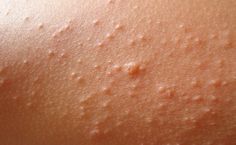Atopic Dermatitis (Eczema) Treatment
 Eczema or atopic dermatitis is a condition which makes the skin itchy and red. This is a common affliction in children, but can occur in people of all ages. Atopic dermatitis is chronic (long lasting) and can flare up periodically. The condition may be accompanied by hay fever and asthma.
Eczema or atopic dermatitis is a condition which makes the skin itchy and red. This is a common affliction in children, but can occur in people of all ages. Atopic dermatitis is chronic (long lasting) and can flare up periodically. The condition may be accompanied by hay fever and asthma.
Texas Surgical Dermatology, led by board certified dermatologist Dr. Tri H. Nguyen, provides safe and proven treatments for improving atopic dermatitis or eczema to patients in Houston, Katy, Spring, The Woodlands, Texas, and surrounding locations.
Diagnosis of Atopic Dermatitis
You don’t need any lab tests for identifying eczema. The doctor may make the diagnosis after examining your skin and reviewing your medical history. They may use patch testing for ruling out other skin diseases or identifying conditions that accompany the atopic dermatitis.
You should tell the doctor if you suspect if something specific caused the child’s rash. You should also ask about identifying food allergies, if that might be contribution to the skin condition.
Treating Eczema
Eczema is usually a persistent skin condition. You may be able to control it by trying different dermatology treatments over the years or months. It is possible for signs and symptoms to flare. It’s crucial that the condition is recognized early so that treatment can be started.
Your doctor may suggest one of the following treatments if self-care steps and moisturizing doesn’t help:
- Medications
You can use creams or oral medications for controlling eczema. These are explained in detail:
- Creams: Corticosteroid cream or ointment may be prescribed by the doctor. You should apply the cream after moisturizing as directed by the physician. It’s fundamental that this drug is not overused since it can cause thinning of skin among other side effects.
- Drugs: Antibiotic creams may be prescribed if the skin has open sores, cracks or bacterial infections. You may be asked to take oral antibiotics from time to time as well.
- Oral drugs: These are meant to control inflammation in more severe cases. Prednisone and other oral corticosteroids may be prescribed for short terms.
- Therapies
Therapies include wet dressings and light therapy.
- Wet dressings: Severe atopic dermatitis is usually treated by wrapping the affected area in wet bandages containing topical corticosteroids. This is a labor-intensive process and may need nursing expertise.
- Light therapy: This is recommended for people that don’t get better with topical treatment or suffer from rapid flare-ups. Phototherapy is the simplest form of light therapy. This involves controlled sun exposure. Other forms may use narrow band ultraviolet B (UVB) and artificial ultraviolet A (UVA).
Light therapy has several harmful effects if used for a long time even though it is effective. An increased risk of skin cancer and premature skin aging are a few side effects.
New Treatments
Dupilumab (Dupixent) is a new injectable biologic (monoclonal antibody) that has been recently approved by the Food and Drug Administration (FDA). The treatment is reserved for patients that don’t respond to other options. Studies have shown the medication to be notable and effective when used as directed.
Board certified dermatologist Dr. Tri H. Nguyen receives patients from Houston, Katy, Spring, The Woodlands, Texas, and nearby areas for the treatment of atopic dermatitis or eczema.
For More Information contact our Board Certified in Dermatologists at Texas Surgical Dermatology in Spring, TX
For more information on procedures and treatments offered at Texas Surgical Dermatology PA please call 832.663.6566 or click here to contact our dermatologists. Helping patients in Houston, The Woodlands, Spring, Katy and other surrounding areas of Texas.

